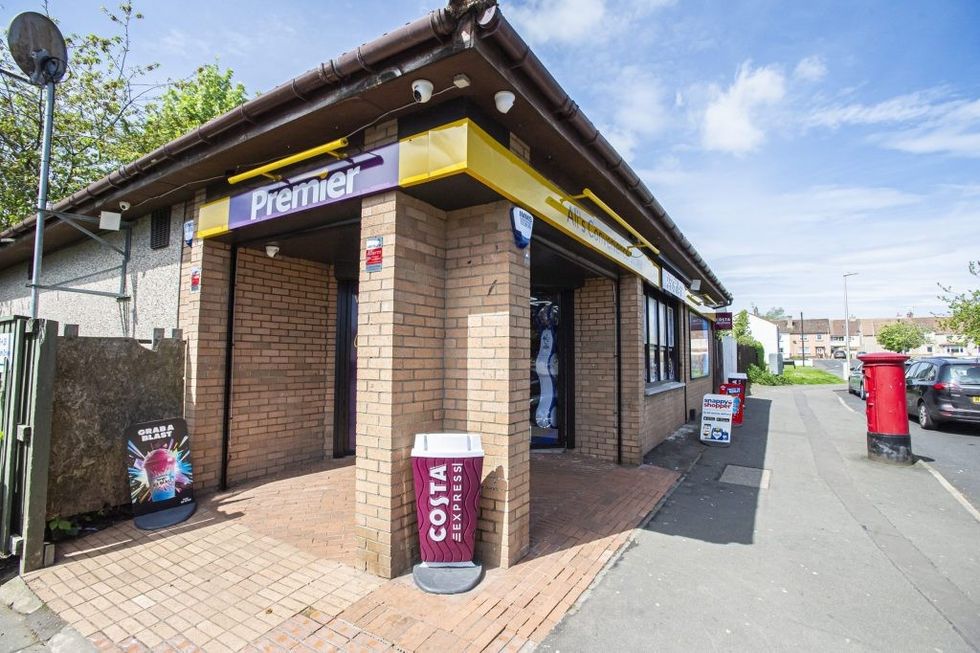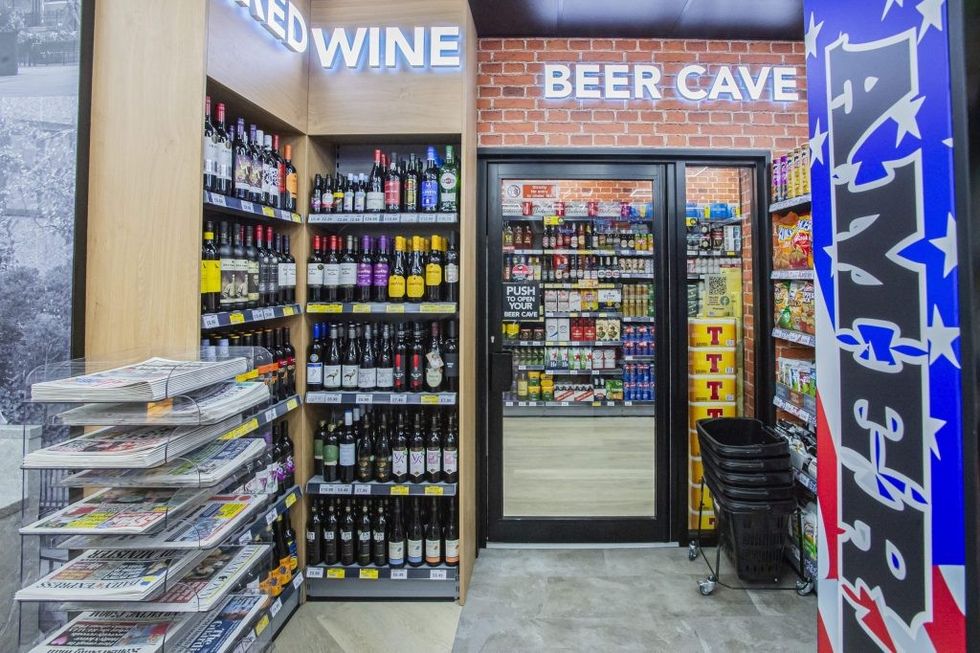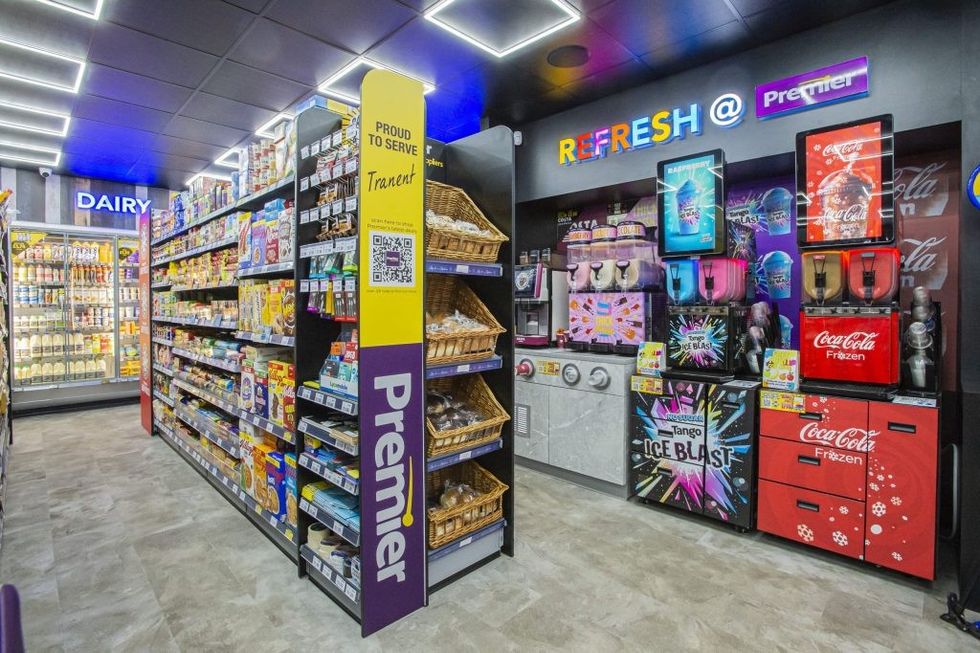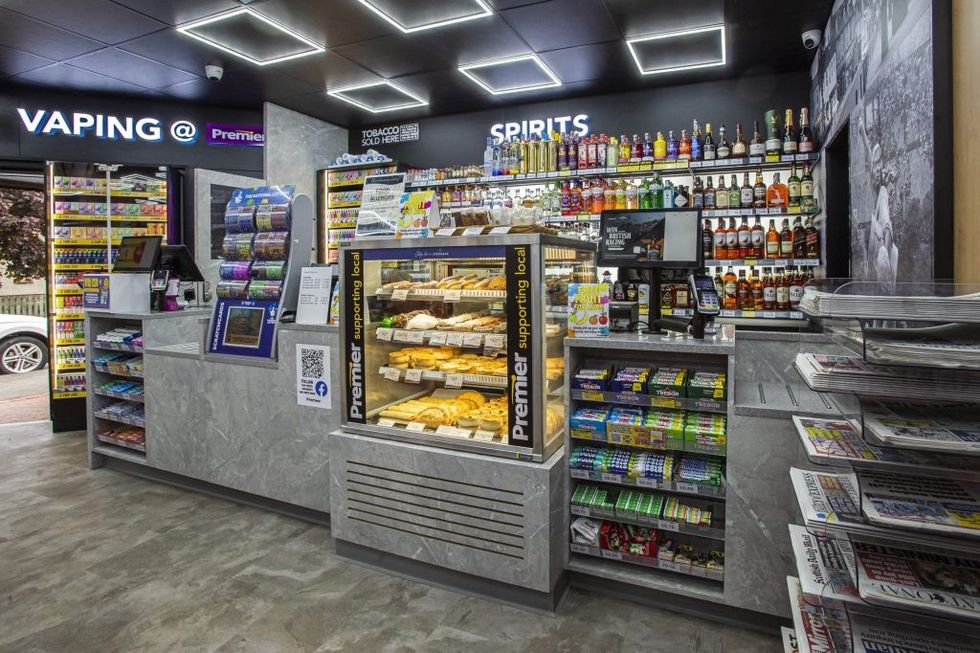Anila Ali, who won Independent Retailer of the Year at the Asian Trader Awards in 2023, explains the vital importance of tailoring your store to your customers
Tranent, a small town in East Lothian, near Edinburgh, might seem an unlikely place for a retail revolution. But for Anila Ali, the winner of the Independent Retailer of the Year at the Asian Trader Awards 2023, it's been the canvas on which she’s painted her entrepreneurial dreams.
Armed with a degree in accountancy, she took the strategic decision last year to refit her store – Ali’s Convenience Store at Muirpark Drive – as a specialised convenience outlet rather than as a would-be supermarket, competing where her real strengths lay.
And the numbers speak for themselves. Turnover has been up by some 65 per cent with margins also rising sharply. The store, which became Scotland’s 500th Premier store, is immaculately merchandised and its food-to-go offering has seen a seven-fold increase in revenue. A vastly expanded chilled section have meant that sales have increased substantially, and home delivery using the Snappy Shopper app is has been up by 30 per cent.
A second generation retailer, Anila’s introduction to the world of retail wasn’t conventional, however.
“I come from a family who ran convenience stores. But I also grew up in a family that didn't believe that women should be working, especially in a shop,” she says.
So, she obtained a degree in accounting and worked in an office. After marriage, her husband Zulfiqar Ali, who is from Pakistan, came in and stated working with her father.

“Then he decided he wanted his own convenience store. And he asked me to work alongside him, because it'd be too difficult for him to learn about it all himself. I left my job and worked with him. And that's my first retail experience,” she says.
Their convenience store, acquired in 2006, marked the beginning of a remarkable entrepreneurial voyage of the husband-and-wife team, and they won their first Asian Trader Award that year, with Anila chosen as Business Woman of the Year.
Strategic refit
Despite initial successes, it became evident that their space constraints were hindering growth, especially in the crucial chilled section. Recognising the need for change, they embarked on a transformative refurbishment project, investing £210,000 in the store refit.
“We did feel ourselves that we were especially struggling on chilled space. Everything from your takeaway burgers to your cold meats was just really crammed in. I had a visit for my new RDM from Booker and he noticed the same thing. He suggested that we install new fridges. So it started off initially just as a couple of new fridges, and then just got huge and we decided to do the whole thing,” Anila says.
A favourable electricity contract has also led to the comprehensive store redesign.
“The strategic decision was made because we had just signed a very favourable electricity contract for the next five years. A few months later, there was big [general] hike, but we were only paying 15 pence a unit, which is really good. At that point, we thought now's the time to invest. It's gonna take a lot of money, but we will have enough time to grow our business and you'll be in a favourable position when our electricity rate does go up, to absorb the financial costs, because we would have grown our business by then,” Anila explains.
So they went back to the drawing board with the shop fitters and the team from Booker, with the back and forth resulting in a lot of changes. The result? A visually stunning space that not only accommodates more products but also prioritises accessibility for all customers, including those with mobility challenges.
“We've gone high on our shelves with wide aisles so there's a lot of space to navigate and move around. Now our shop is more welcoming for all because mobility chair users, bike users can now move within the shop independently and do the shopping themselves,” she says.
The store now features a Refresh@Premier bar with Tango Ice Blast and Coca-Cola Frozen slush machines as well as a two-station milkshake unit and a Costa Coffee machine; a showstopping 400sq ft beer cave; an expanded chilled section from two meters to seven with the range increased from around 70 lines to more than 320; and a new food-to-go cabinet which features a range of pastries, cakes and treats.
“Costa and Stephens Bakery, a local supplier of bakery products – we offer their savouries, cakes and morning goods – have integrated beautifully, because we've seen an uplift in our morning traffic and people coming in for breakfast needs, they will pick up a pie or cake and a Costa coffee,” she reveals.
They were the first beer cave in the whole of Edinburgh, East Lothian and Midlothian and it has injected an element of theatrics into the store, attracting a younger demographic and igniting social media buzz.
“That was our X factor, bringing the beer cave in. It took quite a lot of convincing but we brought it in. And we sell a lot more products in there that we didn't use to sell before,” she says. “It's like the shop has been cleverly configured and marketed as a visual treat. It's a really pleasant warm atmosphere at the shop, and it's done wonders for the business.”
Learn from the young
Anila realises the necessity of infusing her business with a fresh perspective, recognising the importance of adapting to changing times.
“A lot of us retailers from the second generation are very much old school. So it's wise to bring in young staff members, which we do, who will be more up to date with what the trends are like on TikTok. Right now when the freeze dried sweet came in, we were able to bring that in really quickly. Before, we may have been last to the party!” she says.
The young members of her staff keep an eye on emerging trends, especially within the digital sphere, helping to make the store a destination store.
“We're able to bring in the most valuable products straight away just because we have young members of staff,” she notes proudly. “I think you need to get that old school thinking out and think what the future is, the future is TikTok!”
By leveraging the power of social media platforms like TikTok and Facebook, she has not only expanded her reach but also forged meaningful connections within her community.
“We play quite heavily on our social media, which we didn't used to do before,” she shares. “We've partnered up with a digital company, and between them and myself, we post quite a lot. They will post at least something every day, and I'll put bits and bobs in as well.”
They have joined all the local Facebook pages in their area, and then their catchment area for home delivery as well. In fact, one of the pivotal transformations witnessed in Anila’s retail journey is the introduction of home delivery services. Initially hesitant, she embraced this opportunity at the urging of Snappy Shopper, a decision that proved to be immensely rewarding.
“It takes a long time to build a clientele. But I think we worked really hard on our menu. Because we are part of Premier we get the instant promotions that we give online as well,” she says, noting that a lot of retailers did not pass on the promotions online.
“But we give a boost in the promotions online, and I think that helped to attract customers.”
They now deliver to surrounding villages, whose customers would probably never come to the shop, and after the refit, the home delivery sales increased further on the back of their expanded chilled and fresh offering, which she says sell a lot more online than it does in store.
Beacon of community
Anila’s store isn't merely a place to purchase goods; it's a gathering spot for neighbours seeking connection. Through initiatives like donations to the Tranent Food Bank and free fruit for school children, she fosters a sense of belonging and support. For many, her shop serves as a lifeline, offering not just groceries but also a friendly ear and a warm cup of tea for those craving human interaction.
“We have old people who sometimes don't get out during the day and only social contact they get is when they come to our shop. When they come they want to talk about stuff, and we will always lend them an ear,” she says. “And you see relationships formed, sometimes meet other customers and stay for maybe 20 or 30 minutes just chatting away, and it's just nice to see that.”
Her commitment to ethical retailing extends beyond community engagement to fair pricing and sustainability. She refused to participate in price gouging during the Prime dinks craze. “We waited until the calming of supply, bought it and then we could sell it at the RRP of £2.50. That was greatly appreciated by the local community, we have been tagged with other shops, comparing prices,” she reveals.
Anila ensures that essential items remain affordable for all residents. By prioritising fair pricing and a curated product range, she strikes a balance between profitability and accessibility, earning the trust and loyalty of her customers.
“After the refit we were more focused in a core range, a tighter range and a higher profit margin. And there were many lines that were cut, but there were a few lines that we did bring back by customer demand,” she says.
Her dedication to sustainability is evident in every aspect of the business, from product sourcing to store operations. During the refit, Anila brought in a customised vape unit with a built-in recycling point, becoming the first retailer in Tranent to offer in-store recycling.
“A customer comes in, pops the vape into that unit, and then comes and buys another vape from us. So we're offering them that service, but we're still making money. We invested quite heavily in it, but I think as a business where you can and where it's feasible, we will have to immerse and adapt,” she says.
As she looks towards the future, her entrepreneurial spirit burns brighter than ever. Having acquired a second shop late April, they are planning a full refurbishment of the empty unit, and look to open their second store in three to four months time. With her unwavering commitment to staying ahead of the curve, she not only secures the success of her business but also paves the way for a new era of retail excellence in her community.
Leading the way
Anila’s top tips to stay ahead of the curve
- You should have a willingness to learn from other retailers or other professionals in this business, and especially from the third generation, about how to connect with your audience through social media. Social media is so huge right now; I think that's the way forward to market your business.
- Get out of that supermarket mindset. We can't stock everything under the sun. We don't need to have every kind of washing-up liquid in a convenience store. Treat it as a community store and keep the core lines.























